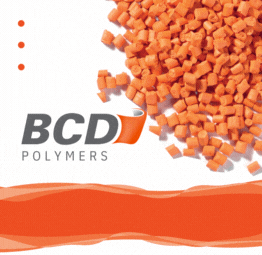Those who are now concentrating on products manufactured from supposedly plant-based and renewable raw materials such as sugar cane, palm leaves or bamboo are by no means protected from pollutants. After all, these materials are not used exclusively but rather always in combination with plastics such as melamine resin, urea formaldehyde resins or polylactates. Toxicological analyses by state supervisory authorities have shown that at higher temperatures considerable concentrations of melamine and formaldehyde harmful to health can migrate from utensils to food. Emissions of pollutants are even higher when using bamboo cups for longer periods of time than for conventional melamine resin cups. According to the German Federal Institute for Risk Assessment, guide values pertaining to health were exceeded 120-fold.
In a test conducted by Stiftung Warentest in July 2019, high quantities of harmful substances were established in bamboo cups resulting in some clear advice: “Hands off bamboo cups. In more than half of the cups tested, very high quantities of melamine migrate into the beverage. Almost all of the remaining cups use incorrect advertising claims to give the impression that users are buying a purely bamboo product or doing the environment a good turn. Use reusable cups made from materials other than bamboo for hot drinks to go.”
Even during the manufacture of reusable tableware made of plastic, energy is saved when compared to other materials: while the processing temperatures for glass are around 800 degrees and as high as 1,000 degrees for porcelain, thermoplastic plastics are processed at around 200 degrees. Reusable tableware made of plastic is durable and can be reused at the end of its life cycle. This is particularly applicable where thermoplastic elastomers such as the SOFT EST.® TPE offered by Actega DS are used in production. Those who opt for these TPE formulations choose a particularly resource- and environmentally-friendly alternative. After all, TPE technology does not require any time-intensive or complex temperature vulcanization for processing which in turn saves time and energy as well as reducing CO2 emissions. The TPE are free of PVC and plasticizers, and display a very low percentage of emitable substances. They are reusable and compliant with food industry standards. Furthermore, the material displays good flow properties and demolding characteristics in injection-molding tools. And another key criterion – particularly in the consumer goods market – concerns the individual coloration properties of the TPE material.
From food storage boxes through chopping boards, reusable coffee-to-go cups or bowls to plates with non-slip elements, tableware and cooking utensils, household and kitchen items are increasingly being manufactured from plastic. There are various types of plastic which are typically used, e.g. melamine, silicone, PVC or even thermoplastic elastomers, depending on the respective designated use. Accordingly, some are suitable for freezing while others are resistant to high temperatures. Some are dishwasher-safe, others are recyclable. Some are not suitable for use in the microwave while others are resistant to scratches and discoloration.
Apart from these differences, other requirements also need considering and these demands are made on all items coming into contact with food. And this is where it gets tricky for some materials. Which brings us back to the topic in hand: no harmful substances from packaging or tableware in food.
Actega DS specializes in the manufacture of TPE plastic granulates for complex regulatory applications, offering a range of innovative TPE materials certified for applications which come into contact with food, for example, whereby importance is sensitively attributed to dispensing with plasticizers as well as adhering to all specifications and limit values prescribed by the EU or the FDA.
In the form of SOFT EST®, a TPE portfolio has been created especially for consumer goods applications which can be processed efficiently and smoothly in an injection-molding process. Under this brand, Actega DS bundles its decades of expertise in the area of manufacturing TPE granulates and developing sophisticated TPE formulations for highly-regulated markets. Comprising 22 materials, the portfolio of flexible TPE compounds offers ultra-transparent, translucent and natural-colored versions in Shore hardnesses ranging from A-20 to A-85. All of the materials are food-safe in accordance with EU 10/2011 and FDA regulations. They are also free of PVC and phthalates. The products are suitable for applications which come into contact with aqueous, acidic, alcoholic, dry, and fatty foods.
“When it comes to health, a precautionary approach must be taken,” is how VZBV Chairman Klaus Müller explains his demand for packaging as well as tableware and cooking utensils which are free of harmful substances. “There must be evidence of their harmlessness before they are placed on the market.”
This is easily possible in the case of TPE offered by Actega DS.


